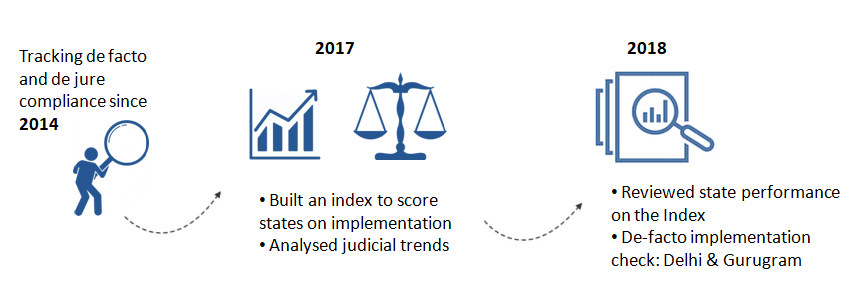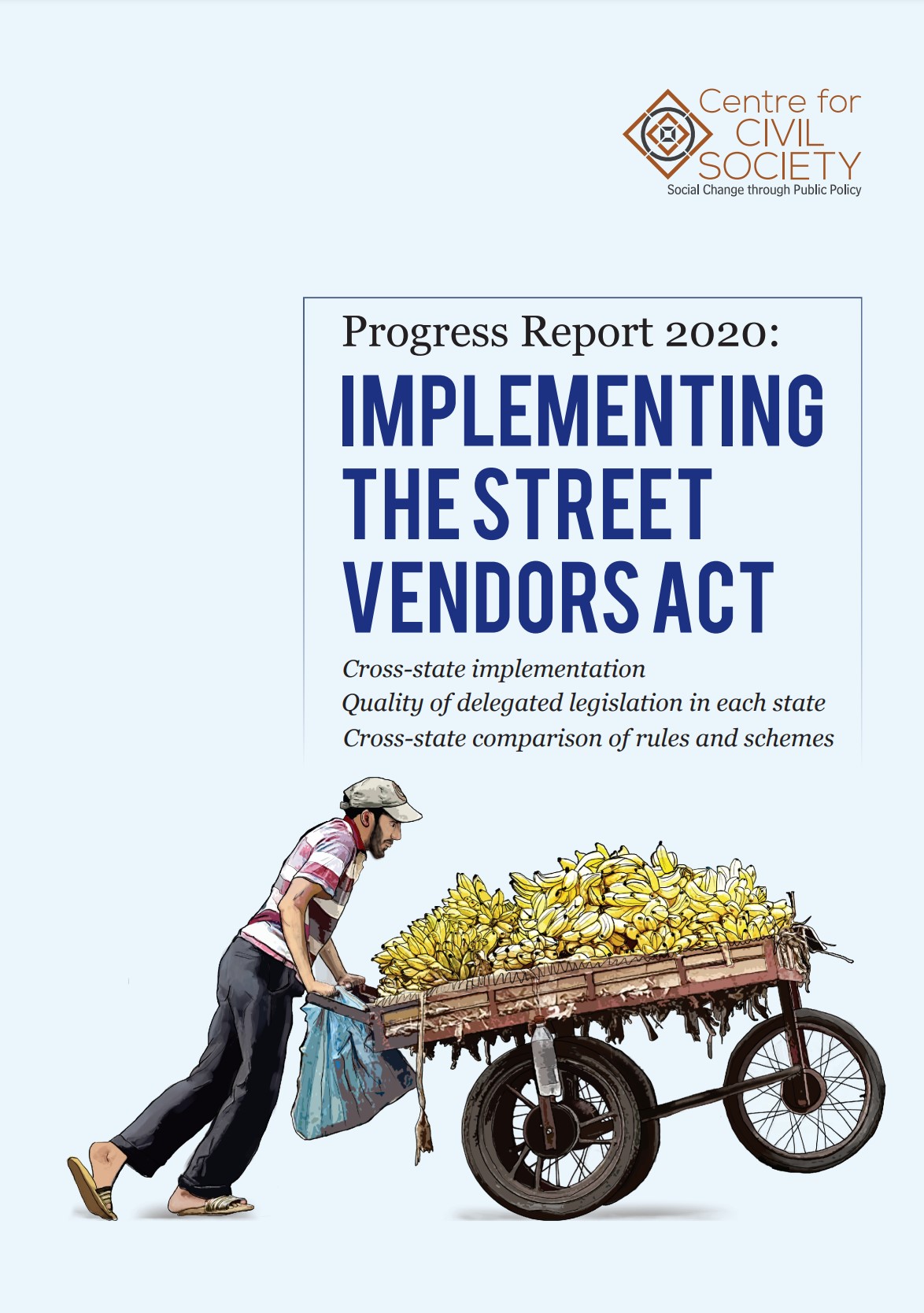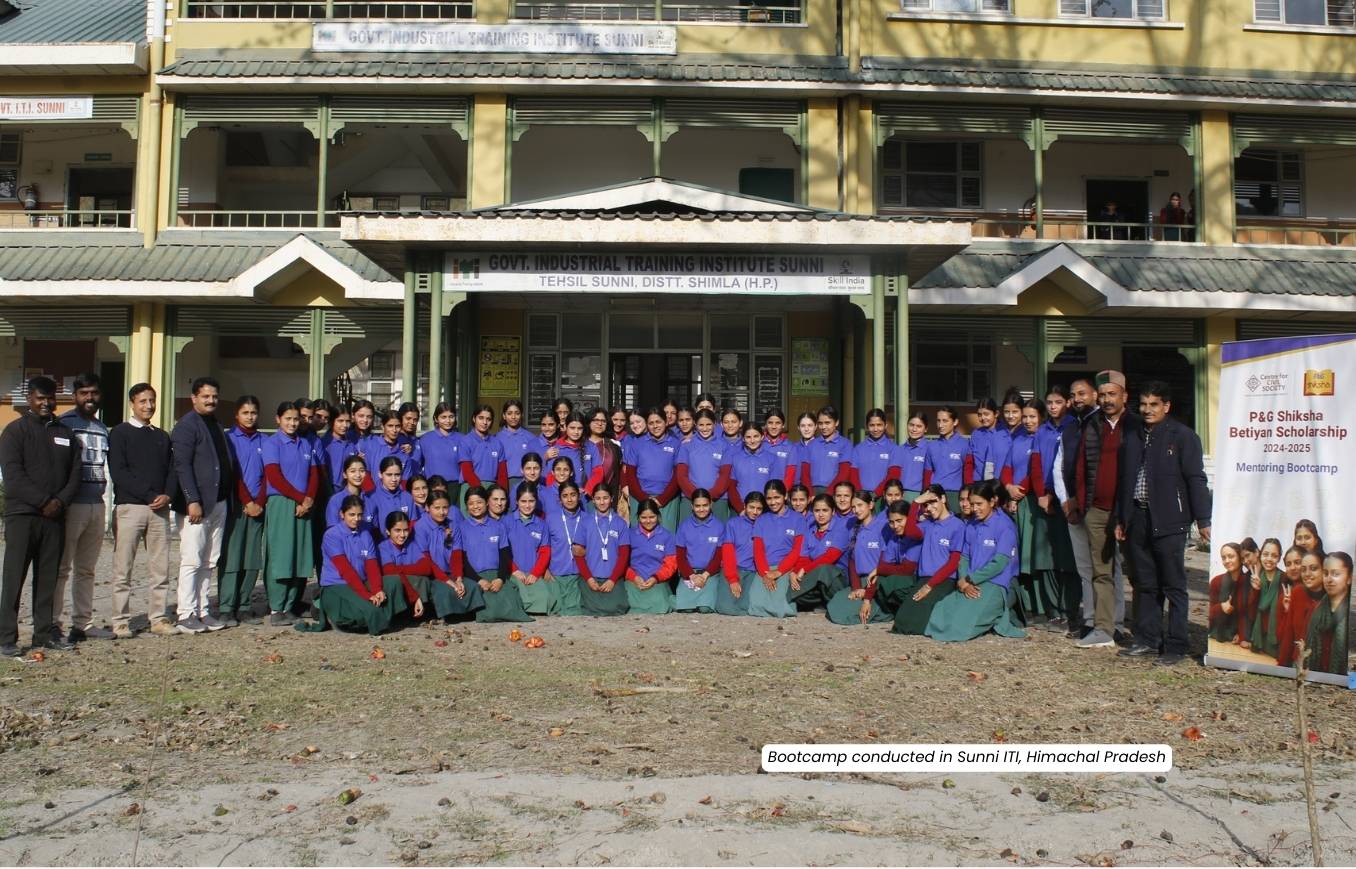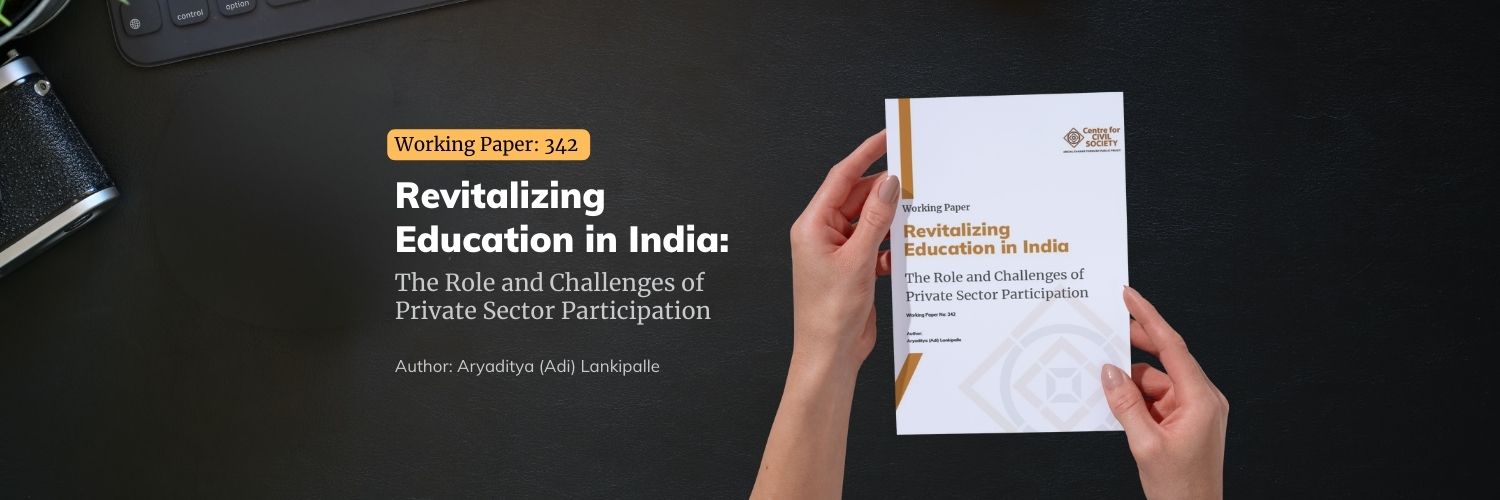Street vendors form an integral part of the urban economy—majority of the population depends on hawkers for affordable goods and services. Vending constitutes a sizeable proportion of the informal sector and creates opportunities for entrepreneurship and self-employment. For several decades post-independence vendors faced harassment, extortion and eviction at the hands of local authorities and found no respite from courts either.
In 2014, recognising the rights of vendors to earn a dignified living, Parliament passed the Street Vendors (Protection of Livelihood and Regulation of Vending) Act 2014. The Act introduces a uniform framework to regulate vending, but delegates rule-making and decision-making powers to state governments and local authorities. Compliance with the Act has two components: formulating subordinate legislation (de jure) and introducing institutional mechanisms and processes (de facto) by which vendors’ rights are protected and conflicting claims over urban streets are managed.

Figure 1: Tracking de facto and de jure progress made by states since 2014
Since 2014, Centre for Civil Society has tracked the de jure and de facto progress made by states in implementation. This year, drawing from the Management Information System maintained by the National Urban Livelihoods Mission (NULM), we obtained data on implementation progress at the level of states and urban local bodies (ULBs). The 2019-20 report builds on our previous practice of tracking state progress and contains three sections.
First, we review the progress made by 28 states and their respective ULBs in implementing the Act using data received from the MoHUA. We rank and score state performance and present a list of top performing ULBs across the country.
Second, we present a cross-state comparison of rules and schemes notified under the Act. Using maps and simplified tabulations we capture the patterns, variations and similarities in the way states approach the same rule-headings.
Third, we present the salient features, hits and misses of the rules and schemes of 35 states and union territories. For each state, we examine whether the delegated legislation departs from the mandate of the Act and encodes checks against administrative excesses.
What do we find?
1. Mixed state performance in implementing the Act:
(a) Many states have substantially progressed in implementing the Act. The range of scores on the Index has risen from 9-76 points (out of 100) in 2018-19, to 20-78 points in 2019-20. In Andhra Pradesh, the highest ranking state, all towns have constituted Town Vending Committees (TVCs), completed enumeration, formulated vending plans, issued identity cards and demarcated vending zones.
(b) Other states continue to fare poorly. Seven states (Assam, Haryana, Karnataka, Maharashtra, Madhya Pradesh, Puducherry and Uttarakhand) are yet to notify schemes and two states (Telangana and Uttarakhand) are yet to notify rules. Although 75% of ULBs have formed TVCs, only 47% have vendor representatives. In four states (Maharashtra, Puducherry, Telangana and Tripura) no ULB has constituted TVCs with vendor representation. In states where most TVCs have completed surveys, vending certificates have not been issued. Only four states (Madhya Pradesh, Nagaland, Punjab and Uttar Pradesh) have constituted grievance redressal committees.
2. While some ULBs represent best practices, most ULBs show glaring inconsistencies with the Act in their method to madness:
(a) Even in the top performing states, ULBs are implementing the Act on their own terms. They have enumerated vendors, distributed vending certificates, formulated vending plans and demarcated vending zones without constituting TVCs—the mainstay for all processes.
(b) Of the 3,248 ULBs in our dataset, less than 131 ULBs ( 4%) meet the criteria for top ULBs. Most of the best performing ULBs (109) are in Andhra Pradesh. Other 22 ULBs are spread across eight states: Tamil Nadu, Rajasthan, Mizoram, Kerala, Jharkhand, Gujarat, Himachal Pradesh and Madhya Pradesh.
3. In many cases, notified rules and schemes introduced by states appear to go against or beyond the mandate of the Act:
(a) In some states, rules and schemes delegate powers to state governments and local authorities that go beyond the mandate and intent of the Act. For instance, in Arunachal Pradesh, Bihar, Goa, Haryana, Karnataka, Nagaland, Andaman & Nicobar, Chandigarh, Daman & Diu and Delhi rules empower state governments to remove any member of the TVC. This mandate finds no mention in the parent Act.
(b) In other states, rules and schemes fail to provide clear guidance on executive action. For instance, in Arunachal Pradesh, Bihar, Chattisgarh, Manipur, Meghalaya and Nagaland schemes introduce ’misbehaviour’ as grounds for suspension of vending certificates without defining what constitutes ‘misbehaviour’.
(c) In yet other states, the delegated legislation introduces new obligations that are not mentioned in the parent Act. For instance, in Rajasthan and Meghalaya, schemes mandate vendors to maintain record books for TVCs to inspect at any time.
By tracking state and ULB level performance, our report highlights the gaps in implementation and allows state authorities to draw lessons from one another.



